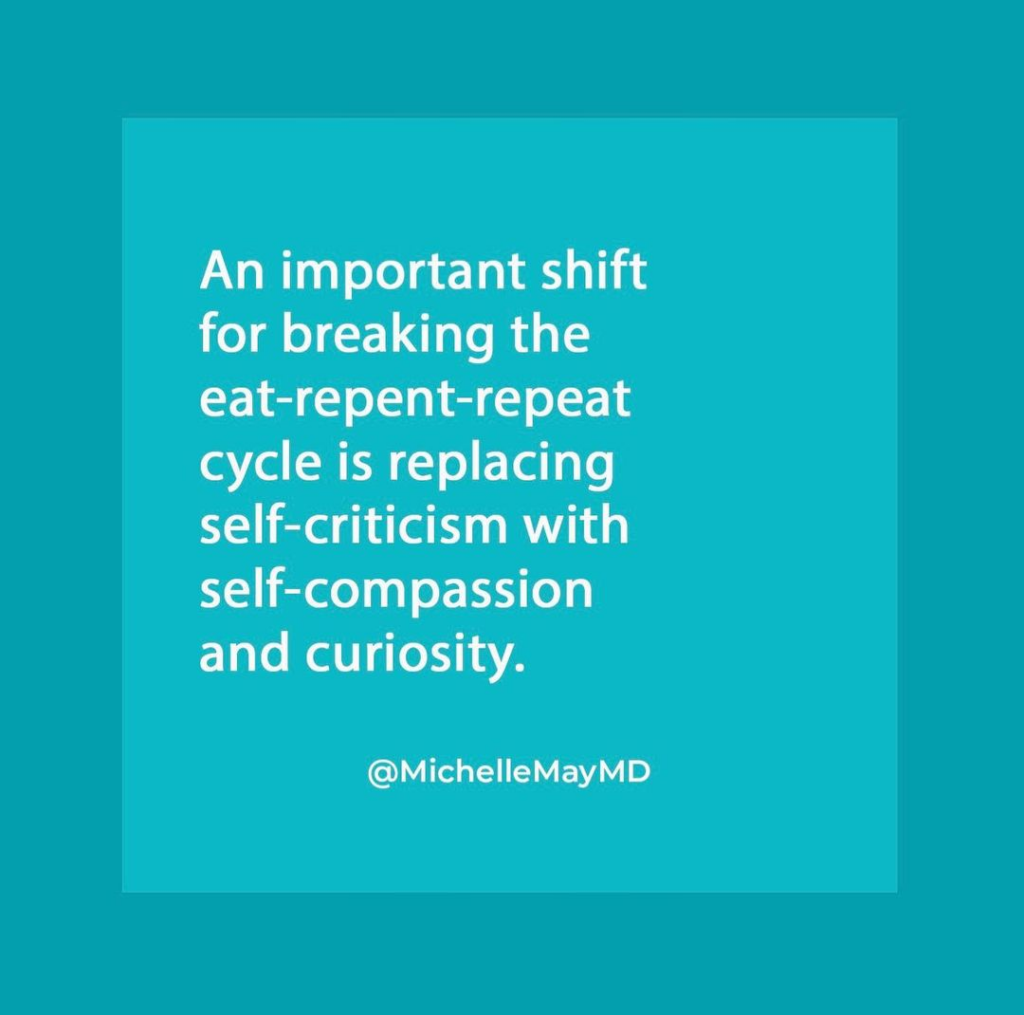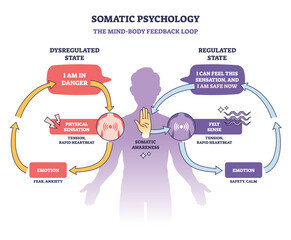Most of us leave out a key ingredient for healthy eating. It’s self-compassion, and it matters because it guides you in making choices that align with your body’s wants and needs. Research shows the more understanding and forgiving we are of ourselves, the more motivated we are to do what we need to take care of ourselves, including eating well.
Self-compassion and intuitive eating is the practice of listening to your body’s natural cues and wisdom to guide what it needs for nourishment. We are all born with this intuition but over time these senses become outweighed by outside influences such as our parents; our culture; and our own judgments. The essential question to ask yourself is “What do I need?” And letting the answer guide you to what to eat and when to eat is an act of self-compassion.
A lack of self-compassion closes the door to learning about our habits, patterns, triggers and needs when it comes to food. By adopting a forgiving and curious attitude instead, you can foster a healthy relationship with eating, food and yourself that can open the door to improved health and happiness.
Self-compassion helps relieve you of the pressure of needing to eat a specific way to be “healthy” or to eat the “right” food. It is challenging to make a caring decision about what you will eat or how you will treat yourself if you are acting based on shame, guilt, fear, or dislike/hatred. When you are practicing self-compassion, it is much easier to make choices that respect your body and self than it is when you are trying to control yourself.
How to Add a Healthy Dose of Self-Compassion to Your Meals BY MARSHA HUDNALL for Mindful.org NOVEMBER 27, 2019 ISSUE
Step 1: Give up black-and-white thinking.
Embrace the fact that healthy eating is flexible and can include a wide variety of foods, some of which are richer than others, such as a pizza. And sometimes the healthier choice may be the richer choice.
For example, which would be a healthier choice at a party: Pizza or salad? The salad is only healthier if that’s what you really want. Otherwise, you might feel deprived and end up overeating later. Enjoying pizza mindfully as part of a celebration allows for the many roles that food plays in our lives. We can often end up feeling satisfied with less when it does.
Step 2: Become aware of how you talk to yourself when eating.
Does a tape start running in your head that admonishes you not to eat too much or not to eat certain types of foods? Or that you’re a failure if you do? Write down what you say to yourself.
Step 3: Write down kind responses to your inner critic.
Have readily available responses that you can “turn on” when you hear yourself starting to go down the familiar road of negative self-talk.
Step 4: Practice those kind responses to yourself.
Every time you hear yourself talking negatively to yourself about your eating, take a moment to be kind to yourself. Try carrying around a small notebook with your new messages to refer to. Remember, the first time you do something differently is the hardest. Every time you do it thereafter, it gets easier.
Practicing both self-compassion and intuitive eating is a journey and it takes time to build the intention to listen to your body’s instinct. Be gentle with yourself on this journey, you may find it becomes easier to hear those natural cues and find pleasure in food once again. You may also begin to celebrate the uniqueness of your body. You may even begin to become receptive to appreciating your good qualities as well as your imperfections. Remember to treat yourself like you would treat a loved one. You deserve the same respect you give to them.
Greta Nielsen, MA, LCPC, NCC
Psychotherapist/Co-Owner Illuminate Therapy & Wellness




